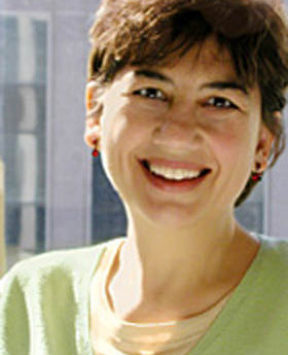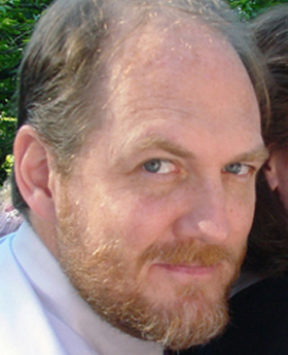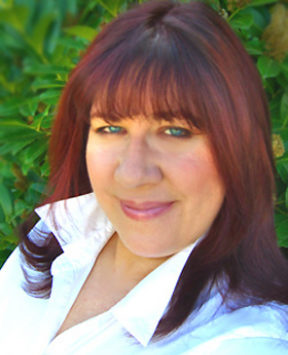If youve ever bought into the term appointment TV then you may also know the disappointment of missing Must See TV or your favorite NPR radio show. You may have even asked yourself why you are expected to do backflips to catch your show of choice based on some programming execs predetermined schedule.
While technology gave us the VCR/TiVo solution to time shift TV, radio fans are still missing This American Life or The Michael Savage Show.
Lakewood resident Mitch Ratcliffe knows about time shifting. While Chief Content Officer at financial news network site On24.com, he was responsible for thousands of hours of time shifted audio and video content. He continued his time shifting bent as consultant to Audible.com.
Mitch recently joined Rob Greenlee, host of WebTalkGuys Radio, for a roundtable discussion on time shifting of digital audio listening in all forms – from mp3 players to recording audio webcast streams on the computer. They discussed how these changes are going to impact broadcast radio in the future.
Rob: What is the concept of time shifting?
Mitch: Live is when were talking and people are hearing our voice in real time. Time shifting is when people choose when theyre going to listen.
Rob: So its a TiVo Moment?
Mitch: TiVo-ish. TiVo isnt the totality of time shifting. But you are taking control of your listening schedule.
Rob: I dont have time to sit around in front of my radio and listen to a program at a certain time and day of the week.
Mitch: Right. One of the benefits of time shifting is you really will be able to hear what people think instead of what is appropriate for the airwaves.
Rob: When are we going to be able to get our audio and video content whenever we want, either through Wi-Fi (wireless) hotspots or downloaded from the Internet?
Mitch: You can see it everywhere. Look at Audible.com. Theyve been time shifting for seven years now, letting people listen to audio books digitally – radio programs, the Wall Street Journal and New York Times read to them. You can get video delivered onto your Pocket PC device today in a Windows Media format and watch a magazine. Not a lot of people are doing it, but its all very easily accomplished. Is just a matter of when the industry will be mature, in the sense that we like to talk about it in the financial world.
Rob: There are some new car stereos coming soon that will have the integrated ability of Wi-Fi. If you have a home network, youll be able to transfer audio and music files to your car before you go to work in the morning.
Mitch: You wont even think about it in terms of transferring to your car. It will just be preprogrammed on a set schedule.
The other thing you can do with the new data-enabled FM radios with all this sideband is have a device in the car that is playing your time shifted content. But when a traffic alert came through, the device would be smart enough to interrupt the time shifted broadcasts, give the traffic alert and then go back to the time shifted broadcast not missing a beat of the time shifted content.
Rob: One of the big questions is how the traditional broadcasters are going to adjust to that?
Mitch: I have four letters for that: R-I-A-A – the Recording Industry Association of America. Their dumb approach to selling music online, saying, Well, you can only use it in one place at one time for this particular purpose and it costs the same as if you bought a CD, which you can use anywhere you want in any way you want and make unlimited copies. They destroyed the early music market. Broadcasters are going to fight it just the same way. They are going to wait until it is absolutely unavoidable, which leaves all this room for new and smaller programs to move in.
Rob: Will shifted audio effect advertisers in any way?
Mitch: The thing about a time shifted audience is they are pretty good targets. You know what they are listening to. Theyve made an intentional choice to listen to something. Advertisers should find this attractive. But thats also the old Web adage – Everybody is going to be targeted and accountable kind of argument that we heard in 1995 that was going to transform advertis-ing. Its going to take a long time.
Rob: Will a live radio talk show like Rush Limbaugh or Sean Hannity be able to make the transition to time shifted shows?
Mitch: You can do the same thing that the CarTalk guys do on NPR. The CarTalk show is not live. They take calls from people, and then they call them back later while they are recording. So you could do a sort of reverse call-in show and do it more conveniently than you could a live show and lower the production costs. Theres a reason that Cartalk can be as professionally produced as a Rush Limbaugh show and not cost anywhere as near as much money to run.
Rob: There is a company called Replay Radio (www.replay-radio.com) that produces software to install on your computer and records whatever you want from traditional radio or audio webcast sort of a TiVo for the radio.
Mitch: Thats what this broadcast flag that the FCC is advocating now is all about, too. Currently they are talking about putting it in video, but theyll be able to do it in audio as well. It will basically turn off your recording device whenever it is identified. So if you happen to film a television screen, there will be a tag in the screen that will turn off the device during the recording. I think its pretty obvious that this will end up in audio as well because (sarcastically) youre stealing the radio! The FCC said the reason the broadcast flag is good was
because it will stop consumers from pirating video like music. The consumer is not the enemy! Because the RIAA has treated the consumer as the enemy, weve been waiting five years for digital downloaded music to even begin to happen even though its been perfectly feasible since 1996.
Rob: People have been recording TV for a long time on VHS tapes and time shifting television content. I was recently out the Streaming Media Conference and heard there is a real aversion in the broadcast radio space for allowing listeners to time shift radio content. They think that it is stealing.
Mitch: Its because they dont want us to think for ourselves. They want us to think the way they want us to think. What time shifting does is allow you to mix a lot of different voices, not just the stuff thats on when you happen to be listening, but to listen to voices with various perspectives from other stations and other sources. Thats what this is all about. Were slowly but surely taking over the media space from these massive entities and theyre fighting it tooth and nail.
Rob: It will give the opportunity for more people to have a voice.
This is civic journalism, which is about citizens sharing solutions and discussing their problems. Taking the time to record those stories is valuable to the community so we have to find ways to reward people for doing that.
Rob: Thats what blogs (Web logs) have been doing for a long time giving people a voice. What were saying here is audio can be the next component of that.
To hear more conversation on time shifting audio with Mitch Ratcliffe, the full audio interview is available at WebTalkGuys.com.Mitchs Websites are at www.ratcliffe.com/RatcliffeBlog/ and www.correspondences.org.
Dana Greenlee is co-host, producer and engineer of the WebTalkGuys Radio Show, a Tacoma-based radio and Webcast show featuring technology news and interviews.






